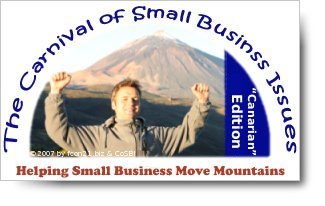Set Customers Expectations Properly

Click to enlarge (↑)
As a professional business person, you will have to find your way to avoid embarrassing situation and make sure that your customer and you not only speak the same “language“, but also mean the same.
You might have heard about the chain of communication:
mean ≠ say
say ≠ hear
hear ≠ understand
understand ≠ accept
accept ≠ do
There are 5 possibilities that the communication between 2 people produces unexpected, unwanted results. It goes well beyond what has been said. It can start out with a customer, who cannot articulate properly what he means, and end with a company delivering something the customer does not want. Some companies are arrogantly thinking, “We know it better than the customer, anyway. He'll love it.”
Avoid those risks altogether by making sure the expectations on both sides match objectively.
A fictional story
A chain of communication between a small business owner (BO) and a Web design firm (WD) could go like this:
BO thinks he wants a Web site, because he has read about a competitor, who has launched a Web site successfully and his sales sky-rocket. But he is also afraid of spending too much money on the Web design firm. However, he is convinced that once he has his Web site, his sales will go through the roof as well.
BO says: “Well, I want a small Web site to promote my store. Nothing fancy.”
WD hears exactly the same. There is no distortion in audio here.
WD understands: “BO wants a small Web site. He doesn't want to spend a lot of money on it.”
WD accepts: “I don't offer him additional packages. If I tell him, that it costs money or that it takes time till a Web site becomes profitable, he probably doesn't order the design from me. Well, I need his business now.”
WD delivers a small, nice Web site. That's it.
BO did not think about promotion for the Web site. He thought it is sufficient to have a Web site in order to get more sales. WD on the other side was afraid of offering more.
If you think the Web designer was a little bit unfair, I agree. He simply could have asked BO how he is going to promote the site. There would have been room for additional business. BO does not even know the basics of Internet marketing.
In other Blog posts I wrote about the importance of an educational marketing strategy. In this fictional case it could have worked nicely.
The conclusion of this short story is that both parties, customer/prospect and the business representative should ask a lot of questions and give honest answers. In the case of a standard product load (but don't overload) the sales page with detailed information and answer objections a prospect might have. Of course keep it benefit driven as much as possible. Actually I stop here, because this not not a course in copy writing.
Yours
John W. Furst


 It's in the human psychology that everybody is a bit selfish. Marketing and sales experts rephrase it as a question.
It's in the human psychology that everybody is a bit selfish. Marketing and sales experts rephrase it as a question.


